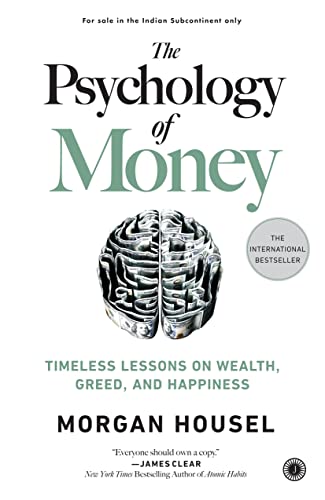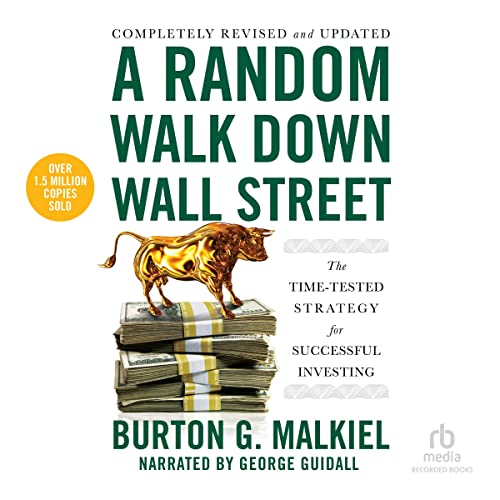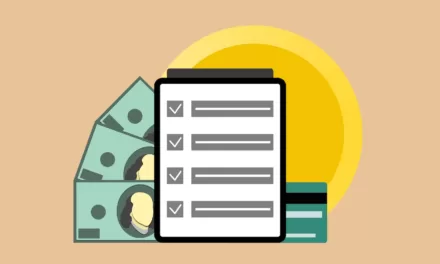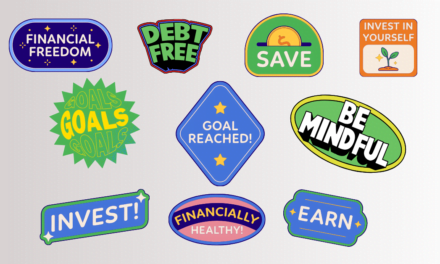In this post, we will look at the 10 best personal finance books, but first, our disclosure:
Disclosure: This post may contain affiliate links, meaning we earn a commission on purchases made through those links at no extra cost to you. As an Amazon Associate, I earn from qualifying purchases.
Disclaimer: The content on this site is for informational and educational purposes only and does not constitute financial, investment, legal, tax, or any other professional advice and should not be used as a substitute for professional advice. For more details, read our full Disclaimer.
Overview of The Best Personal Finance Books
I’ve compiled a list of some of the best personal finance books I’ve come across. They cover a variety of money topics, including the impact of behavior on your finances and how to invest, save, and pay off debt. The books I picked aim to help you make good decisions and build wealth while offering different perspectives.
For instance, “The Automatic Millionaire,” “The Total Money Makeover,” and “The Simple Path to Wealth” all aim to help you achieve financial freedom by eliminating debt and saving money. However, they each offer unique approaches and opinions on how to achieve that goal.
If you are short on time, then I highly recommend starting with “The Psychology of Money” and “The Little Book of Common Sense Investing.” These are two of my all-time favorite books. Both contain invaluable insights and are quick reads. It will only take a couple of weeks at most to read both books combined, and the information they provide will have a lasting impact on your money and investing decisions.
Now, let’s jump right into my list of the best personal finance books.
List of the best personal finance books
“The Psychology of Money” sits at the top of my list of the best books on personal finance. I could not put this book down. It is an excellent resource for understanding how our experiences influence financial behavior. It doesn’t seek to embarrass or criticize you for your decisions. Instead, it assists you in developing a better understanding of yourself and your connection with money. This is one of the most insightful books on personal finance I have ever read. To make things even better, it is a quick read. I cannot recommend this book enough.
Great quote:
“financial success is not a hard science. It’s a soft skill, where how you behave is more important than what you know.”
Morgan Housel, The Psychology of Money: Timeless lessons on wealth, greed, and happiness
“The Little Book of Common Sense Investing: The Only Way to Guarantee Your Fair Share of Stock Market Returns“
by John C. Bogle
If you’re looking for a simple and effective way to invest in the stock market, “The Little Book of Common Sense Investing” is a must-read. It is one of the best personal finance books available. I can attest to the effectiveness of John C. Bogle’s investment strategy, having invested in individual stocks and actively managed mutual funds and index funds.
John C. Bogle founded The Vanguard Group and is credited with creating the first index fund. It provides an investment strategy that helps investors earn their “fair share” of stock market returns by investing in the broad market while keeping costs to a minimum. In short, “The Little Book of Common Sense Investing” shows how a simple low-cost S&P 500 index fund or a total market index fund might be the smartest, most powerful, wealth-generating investment someone can make.
Great Quote:
“Where returns are concerned, time is your friend. But where costs are concerned, time is your enemy.”
John C. Bogle, The Little Book of Common Sense Investing: The Only Way to Guarantee Your Fair Share of Stock Market Returns
“A Random Walk Down Wall Street: The Best Investment Guide That Money Can Buy“
by Burton G. Malkiel
If you’re looking for an in-depth look at the stock market and investing, “A Random Walk Down Wall Street” is the book for you. It is one of the most comprehensive books on investing available and a go-to book for anyone interested in the subject.
In “A Random Walk Down Wall Street,” the Castle-In-The-Air theory proposed by John Maynard Keynes is discussed, as well as how bubbles are formed. The book then covers a wide range of investment topics, including modern concepts of technical and fundamental analysis. It provides a comprehensive guide to behavioral finance, stocks, bonds, precious metals, insurance, real estate, and the best strategies for structuring your investment portfolio to achieve your retirement goals.
This book’s big takeaway is the importance of a buy-and-hold strategy centered on low-cost, low-turnover index funds.
Great Quote:
“What is hard is having the discipline to save small amounts on a regular basis and to keep it up regardless of the inevitable crisis of the moment when news reports suggest that the sky is falling and economic disaster is sure to follow.”
Burton G. Malkiel, A Random Walk Down Wall Street: The Time-Tested Strategy for Successful Investing
In my opinion, it is vital for individuals to understand how their behavior and biases impact their investment decisions. “The Little Book of Behavioral Investing” is a valuable resource that offers insights into this topic and should be included on any list of the best personal finance books.
As you read the book, you will encounter a range of topics, including lost aversion and the futility of forecasting. I guarantee you will acknowledge that you are prone to many of the biases discussed in the book, such as overconfidence and hindsight bias. I know I did!
The bottom line is that investors must be aware of these behavioral traps to improve their investment strategies, and “The Little Book of Behavioral Investing” does just that.
Great Quote:
“Success in investing doesn’t correlate with IQ once you’re above the level of 100. Once you have ordinary intelligence, what you need is the temperament to control the urges that get other people into trouble in investing.”
Warren Buffet, quoted by James Montier, The Little Book of Behavioral Investing: How not to be your own worst enemy
“The Millionaire Next Door: The Surprising Secrets of America’s Wealthy“
by Thomas J. Stanley
Many people assume that millionaires live extravagantly with lavish homes, expensive cars, and fancy clothes. However, “The Millionaire Next Door” dispels this misconception and shows that most millionaires do not look like “millionaires.” Instead, they build their wealth slowly, live modest lifestyles, and drive older cars. Reading this book about ordinary people who could be your neighbors becoming millionaires is inspiring.
In “The Millionaire Next Door,” you will learn about the concepts of a “Prodigious Accumulator of Wealth (PAW),” an “Under Accumulator of Wealth (UAW),” and an “Average Accumulator of Wealth (AAW).” It will go on to provide you with a simple formula to determine which category you fall into.
The book “The Millionaire Next Door” was written in 1996, so its statistics are now outdated. The dollar figures it mentions are much lower than today due to inflation. Furthermore, some of the topics it discusses are no longer relevant, such as prestigious department store credit cards and the make of cars people drove almost 30 years ago. Additionally, today, many more women are the breadwinners in their families since this book was written.
All things considered, “The Millionaire Next Door” remains relevant, but the first few chapters are particularly valuable. If you only read those, you’ll be well off.
Great Quote:
“Wealth is not the same as income. If you make a good income each year and spend it all, you are not getting wealthier. You are just living high. Wealth is what you accumulate, not what you spend.”
Thomas J. Stanley, The Millionaire Next Door: The Surprising Secrets of America’s Wealthy
“The Intelligent Investor” is one of the most famous books on investing, written by equally famous Benjamin Graham. Therefore, no list of the best personal finance books would be complete without it. The book teaches investors a value-based approach to investing that focuses on long-term investments and minimizing risk. This is the book that helped to shape the investment strategy of Warren Buffett.
Before you run out and buy this book, know that it is not a light read. “The Intelligent Investor” clocks in at over 600 pages, which can be overwhelming. Therefore, if you never read the entire book, then I suggest reading the two chapters that Warren Buffett emphasizes. Those are the timeless Chapters 8 and 20. Chapter 8 covers how to be an intelligent investor during market fluctuations, and Chapter 20 covers the concept of a margin of safety.
One thing to note is that this book was written in 1949, so some parts are outdated. However, its core lessons stand the test of time. Let’s face it. If this book is good enough for Warren Buffett, it is good enough for the rest of us!
Great Quote:
“Never mingle your speculative and investment operations in the same account, nor in any part of your thinking.”
Benjamin Graham, The Intelligent Investor: The Definitive Book on Value Investing
“The Automatic Millionaire” is a good book for beginners and those struggling with saving and debt. It centers on the idea that you always need to pay yourself first. To achieve this, “The Automatic Millionaire” emphasizes the importance of automating your savings and investing. To help you along the way, each chapter ends with a checklist of action items.
Having been released in 2003, some of its references are dated, but David Bach does a good job of addressing this in later editions by adding updated information at the end of each section. Regardless, the main point of “The Automatic Millionaire” is timeless: Always pay yourself first. Moreover, the book provides two helpful calculations to determine where you are in your wealth journey: The amount of time you work for yourself and a wealth calculation that compares your household income to your net worth.
If you’re a beginner looking for one of the best personal finance books, “The Automatic Millionaire” is an excellent choice, but beware of one particular drawback. The book includes lists of companies and websites to help you with your finances. However, it’s important to note that these lists do not differentiate between expensive and low-cost investment options. In general, the book does not adequately address the outsized impact of costs on investment returns. So, choose wisely!
Great Quote
“Every time you earn a dollar, you should pay yourself first.”
David Bach, The Automatic Millionaire, Expanded and Updated: A Powerful One-Step Plan to Live and Finish Rich
“The Total Money Makeover” is one of the most influential books on this list, which is why I consider it one of the best personal finance books. It provides a structured, 7-step approach to getting out and staying out of debt. “The Total Money Makeover” focuses on changing the behavior that leads people into debt, not the math behind it.
Dave Ramsey and his “Total Money Makeover” can be polarizing, but do not let that scare you away. You may not agree with everything, but Dave Ramsey gets a lot of things right in the “Total Money Makeover.” His baby-step plan has helped millions of people get out of debt and take control of their finances. It is difficult to argue with the results even if you do not agree with all aspects of his approach. Besides, it is always good to remember the negative impacts of debt, and “The Total Money Makeover” is good at hammering home that point.
Learn about the pros and cons of the “Total Money Makeover” with my in-depth guide to Dave Ramsey and his baby steps.
Great Quote:
“If you will live like no one else, later you can live like no one else.”
Dave Ramsey, The Total Money Makeover: Classic Edition: A Proven Plan for Financial Fitness
“The Simple Path to Wealth” is unique because it is a self-published book. What makes it among the best personal finance books that will help you win with money is that it offers straightforward advice on money in an interesting and engaging way. This book reads like a conversation you would have with a friend or neighbor, making it an easy read. It also gives you insight into the Financial Independence Retire Early (FIRE) movement, which sets it apart from other books on this list.
For instance, “The Simple Path to Wealth” will advocate saving 50% of your income, as is often recommended by the FIRE method. That is a tough sell, but don’t let that stop you from reading this book. In the end, “The Simple Path to Wealth” is all about advising you on limiting debt and saving as much as possible while keeping your investments simple. In short, the less you spend, the more you save, the faster you will reach financial freedom.
Best Quote:
“Stop thinking about what your money can buy. Start thinking about what your money can earn.”
JL Collins, The Simple Path to Wealth: Your road map to financial independence and a rich, free life
If you’re looking for a comprehensive reference guide to investing, this pick for one of the best personal finance books might surprise you – it’s a “For Dummies” book. Don’t let the title fool you, though. This book covers all the basics in a structured and straightforward format, making it an ideal starting point for those new to investing. Regardless of where you are in your investing journey, we all have to start somewhere, and this book is an excellent resource for beginner investors. It is also a great refresher for more experienced investors.
Great Quote:
“Saving is a prerequisite to investing. Unless you have wealthy, benevolent relatives, living within your means and saving money are prerequisites to investing and building wealth.”
Eric Tyson, Investing For Dummies
The best personal finance books: final thoughts
These recommendations for best personal finance books prioritize proven methods over chasing investment trends or quick fixes. For instance, the books focus on reducing debt, increasing savings, and investing in simple, low-cost index funds to achieve long-term financial success. In fact, with their practical advice, these books can help you improve your financial well-being.
Whether you read one or all of these books, the important thing is to continue educating yourself on personal finance and investing. These books have helped me improve my finances and grow my wealth. Hopefully, they can be of use to you as well in your journey towards achieving financial freedom.
















